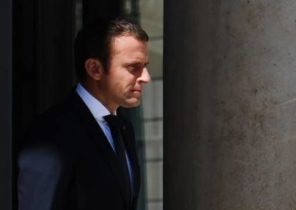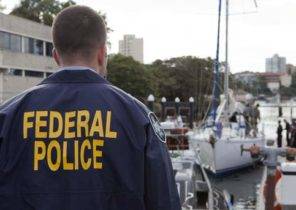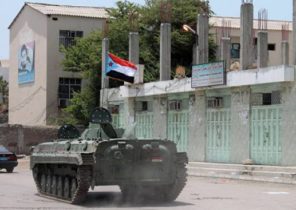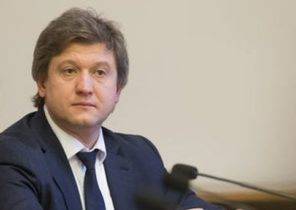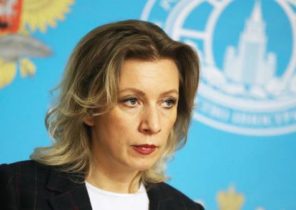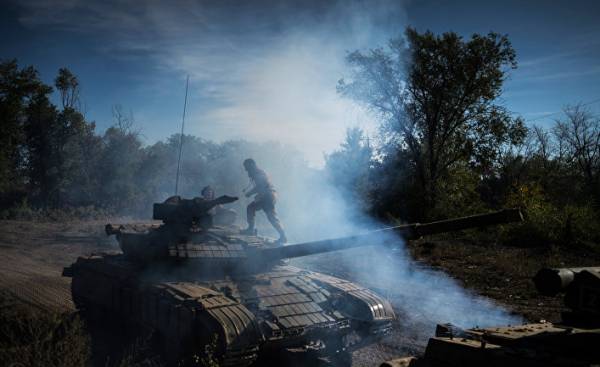
Wlodzimierz Ishchuk: Not everyone in Poland understand what is happening in Eastern Ukraine, the Russian propaganda claims that the Donbas is a “civil war”, and some poles believe in it. You — a pole, who with arms fought against the terrorists and Russian aggressors. What can you tell us about this war? What happens in the Donbass, really?
Wojcicki Yaroslav (Jarosław Wójcicki), pole from the town of Sudova Vyshnia, which fought as part of the emergency response unit of the border service in the East of Ukraine: In Donbass there is a real war. This is a real military conflict, no matter how it is called ATO or civil war.
The Ukrainian government also uses the definition of “anti-terrorist” operation, but such operations don’t last for three years. Calling it a war, we recognize that Ukraine officially is a party to a military conflict with another state, in this case with the Russian Federation. In this situation, all businesses have to serve only military purposes, it is impossible to carry out any reforms, to ensure the normal functioning of the state.
This is no “civil war”, because so called conflict that takes place within the country, but here we are dealing with external forces — mercenaries and Russian military are fighting on the side of the so-called separatists.
A lot of evidence of this presented project InformNapalm and British expert group Bellingcat. They register the facts presence in the East of Ukraine the Russian military and modern Russian weapons, some do not have the Ukrainian army. Ukrainian military and intelligence has been repeatedly detained by Russian servicemen in the so-called ATO area, they were later exchanged for captured Ukrainians.
This was confirmed to me by one of the inhabitants of the territory not controlled by Ukraine, at the checkpoint at Hnutove, near Mariupol, where our division. At the checkpoint of separatists he noticed people who were not similar to Slavs. These were the Chechens, the so-called kadyrovtsy. They didn’t even know how looks Ukrainian passport, and opened it, holding it horizontally (like Russian), but not vertically. Later, our investigation confirmed that shortly before this there had rotated the squad and brought the Russian and Chechen fighters.
– Tell us about yourself, how you ended up in this war?
My agenda a few days was in the military mobilization Department of the City Council, no one me about it said. Apparently they thought that I will try any means to avoid sending to the front, especially since I’m a pole, what I there to fight? But in the end, this was reported to my mother. She also did not tell me at once, and only two days prior to the date when I was supposed to be in the military, she said, “will you Go?” I, without hesitation, replied: “of Course, because someone should.” “I do not doubt it,” replied she.
When the appointed day I came to the military Commissariat, I was asked to choose the OU where I want to serve: the 24th mechanized brigade, Lviv 80th airborne brigade, or the new rapid response unit of border service “the Rock”. I chose the latter option.
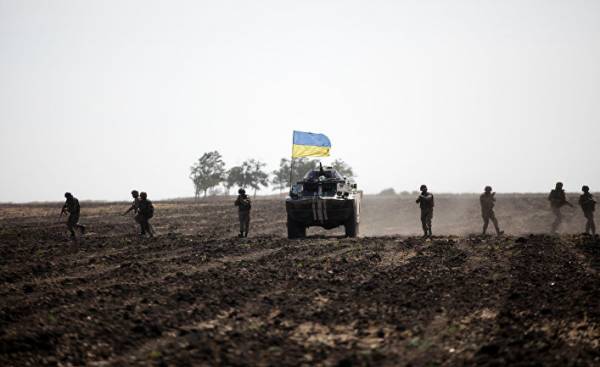 © Ministry of Defense of UkraineСолдаты APU in the East of Ukraine
© Ministry of Defense of UkraineСолдаты APU in the East of Ukraine
21 Aug 2014 when there was a tragedy near Ilovaysk, we started training with us did the people who were “hell in the East.” It was, in particular, the military of the 80th airborne assault brigade, which took part in the battle for the airfield in Lugansk, as well as the guys from border guards, who came out of the environment between the Russian border and the so-called separatists, when they fired those and others. Within a month we were taught to coordinate the actions inside the units to move in combat columns, to carry out attacks on enemy reconnaissance and sabotage operations, to get out of the environment, to provide first aid and so on.
In September 2014 we moved to the East in the direction of Mariupol, more specifically in the village of Sartana, which is located in the North-East of the city.
– What are the challenges you and your unit performed?
— When we arrived at the base in Sartana, we were divided into groups and divided into four checkpoints. First task we had to check people and vehicles that appear there, to prevent the actions of subversive groups of the enemy, to seize the contraband. I was then transferred to the search and reconnaissance group, which was engaged in the monitoring of the “gray zone”, the fight against subversive groups and identifying people with separatist sentiments among the local population (so-called Stripping or filtering). In November 2014, our group was on duty at the new Outpost No. 12 in the village of Hnutove is located on the so-called line of demarcation in the vicinity of the draw zone. The tasks were the same as before, but we were already on the front line, where we regularly fired, and the risk of attack by diversionary and sniper groups was much higher.
You quickly got used to combat conditions?
Ten years ago I served in the Ukrainian army — serving. In the Donbass was completely different, incomparable experience. Quickly I used? Don’t know fast or slow, but I had to adapt like everyone else. Colleagues, acquaintances often ask me whether I’m scared. Only people devoid of imagination can say that he is not afraid of anything. It all depends on how you are able to mobilize in a critical situation, because you need to keep cool.
– How high is the morale of soldiers fighting in the East of Ukraine?
— If not for the morale of soldiers, who for the last three years fighting in the East of our country, we would have had, apparently, test the morale of the inhabitants of right-Bank Ukraine, and even Europe.
– What mood prevailed among the civilian population of Donbass in the period of the war?
— In the period when I was in the Donbas, that is from September 2014 to March 2015, these sentiments changed. When we arrived in Sarteano, two-thirds of the inhabitants treated us with hostility, they could not decide which direction to take. In the early summer of 2014, when Mariupol and its surroundings are cleared of separatists and Russian mercenaries, most joined for the “Russian world” (the result of a hybrid war and the impact of Russian propaganda), the Pro-Ukrainian position held by few. The problems arose because when fired at our positions, ordinary people suffer. For example, on October 14 in Sartana in the course of a shelling (it led in the number of BM-21 “Grad”) a shell hit a funeral procession, killing seven people.
The locals wanted us to leave our positions, even though we were on the outskirts of the village and also came under fire. But later, when working again shops, ATMs that have closed because of the threat of the emergence of the separatists, people understand that we are protecting them, and began to treat us better. Gradually they realized who is who, although many are still helping the separatists, especially if it’s their relatives.
– What impression of the opposite side? What motivates these people? If you can call them opponents worthy of respect?
Is war, any enemy can not be underestimated, especially against the Ukrainian army, the government forces and volunteers not only fighting Pro-Russian separatists from the local population (just over half), but the Russian military and mercenaries, which is confirmed by the InformNapalm group and Bellingcat.
What motivates them? Local first looking for easy money. The so-called separatists are people who believe in Russian propaganda and representatives of the lower social strata: alcoholics, drug addicts, criminals.
Russian soldiers who receive salaries from the state, to carry out orders, they have to fight, otherwise they can go to jail. They definitely can not be called blood thirsty killers. In turn, mercenaries, Russian, Chechen, Buryat, Abkhaz and so on are fighting for money and for the sake of trophies that they can capture.
Our enemy is not worthy of respect, because for him nothing is sacred. If these people at least be honest fought against the Ukrainian army. But they deliberately artillery shelling of civilians, using scorched earth tactics. How can they be respected?
– What, don’t you think that enough of the Ukrainian army for an effective defense?
— First of all she needs modern weapons including counter-battery radars, anti-tank guided missiles, modern armoured fighting vehicles, which in the beginning of the war was too little. Now technology is also lacking, but in those three years the Ukrainian army has become much more strong, a lot of equipment upgraded and produced. Unfortunately, Europe does not understand or pretends not to understand these problems, although Ukraine acts as a shield that protects not only their independence, but also Europeans. The only thing the Ukrainian military has no shortage of is morale.
In August 2008 Polish President Lech Kaczynski (Lech Kaczyński) said, “We know perfectly well that today Georgia, tomorrow Ukraine, the day after tomorrow the Baltic States, and then, perhaps, the time will come when my country, Poland! We believed that membership in NATO and the EU put a barrier to Russian appetites, but it was a mistake.” Do you agree with the statement that in the East of Ukraine there is a war for the future of Europe, and the object of the attack were not only Ukrainians, but also of the European continent?
Is, unfortunately, true. In the East of Ukraine there is a war for the future and the integrity of Europe and European States gradually begin to arm themselves: they return a mandatory appeal, sending more money into defense budgets. But these actions are few. Europe must support Ukraine in the war against the “Russian bear”, because if she loses, the next victims of the attack could become the Baltic countries and, unfortunately, Poland.
– Say a few words to the victims of the Russian information war, the poles, who believe the lying Russian propaganda.
— Each person has their own head on their shoulders and their own relationship to propaganda, including Russian. I would advise anyone who believes her critical approach to the Russian media and to draw attention to the fact that Russia invests huge money in the propaganda directed against Ukraine, Poland and all European countries that do not approve of the aggressive expansionist policy of Moscow. And still I will advise not to forget about what happened in the past: the 1992 war in Moldova, 1991-1994 war in South Ossetia and Abkhazia 1992-1995 — war in Tajikistan, 1994-1995, 1994-1995 — the first war against Chechnya, 1999 — the second, the 2008 war against Georgia, 2014 — the war against Ukraine in 2015 against Syria. Who will be next?
– Do you believe in victory?
— Victory’s for sure! The question of when and at what price. So far it looks not too optimistic. But we know that offensive war in contrast to the defensive war usually leads to defeat, as in the proverb: “he who fights by the sword, by the sword and dying”.



